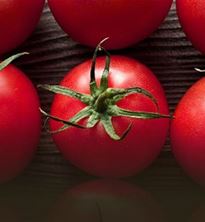

From university rooms to the production in the fields. Now, after being developed by researchers of Agricultural, Food and Agri.environmental sciences department of Pisa university , the "SuperBio" tomato project arrives at cultivated fields, with a nursery of 10 thousand of specimen that will become 70 thousand in 2016.
"SuperBio" tomatoes will be more healthy, because they are richer of lycopene, calcium, potassium, phosphorous and zinc and with a higher anti-oestrogenic power.
The tuscan university department has an agreement with “L’ortofruttifero” company of San Giuliano Terme in the province of Pisa: this year the production starts with 10 thousand spiceman that will become 70 thousand in 2016.
The multidisciplinary study of Pisa university, coordinated by the professor Manuela Giovannetti, has been led by agrultural, medical and biology professors and it has published in the international journal “British Journal of Nutrition”.
«The research- explained Giovannetti, who leads the Interdepartmental Centre of Nutrafood-Nutraceutica research and Nutrition for health of Pisa university- has shown that cultivation methods can have an influence on the health value of produced food. Infact the content in phytochemical, molecules produced by plants that have important protective and preventive properties for different types of human diseases, can increase if plants grow together with beneficial micro-organisms that establish with thwm a particular type of symbiosis called "mycorrhized"». The study has shown higher level of lycopene (+18,5%), calcium(+15%), potassium(+11%), phosphorous (+60%) and zinc(+28%) than tomatoes traditionally produced.
«tomatoes produced by biologically cultivated and with their symbionts micro-organisms plants- has concluded Manuela Giovannetti- show also an higher anti-oestrogenic power and represent an example of ecological and sustainable food production, able to reduce the use of chemical fertilizers and pesticides, obtaining food of high quality and with high nutraceutical value, a theme of great social interest, strongly required by consumers and producers».
Source: http//www.ilfattoquotidiano.it